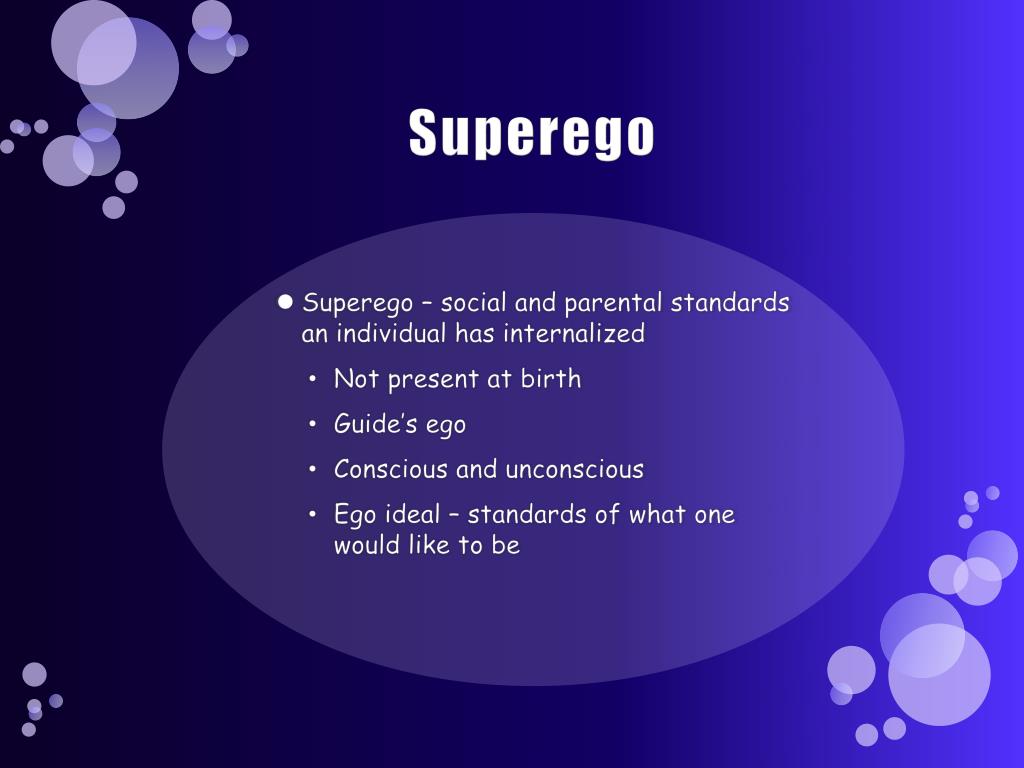
However, an alternative, albeit less-recognized, school of thought proposes instead that it is the instinctual drives as knowers that constitute the ego. The most prominent post-Freudian position proposes that the ego is independent of the instinctual drives (e.g., Hartmann, 1950, 1958).

The precise relationship between the id, ego, and instinctual drives remains an issue of dispute.

Finally, the impact of psychological conflict and the significance of repression for understanding the nature of splits within the psyche are also discussed. This account is then extended to object-relations and the explanatory value of the ego-drive account is discussed in terms of the addressing the nature of ego-structures and the dynamic nature of internal objects. The nature of the “self” is developed in terms of identification and the possibility of multiple personalities is also established. Following on from Freud, the ego is viewed as a composite sub-set of the instinctual drives (ego-drives), whereas those drives cut off from expression form the id. Given that there are multiple drives, this position proposes that personality is constituted by multiple knowers. Based on Freud’s ego-instinct account, this position has developed into a school of thought which postulates that the drives act as knowers. While ego psychology views the ego as autonomous of the drives, a less well-known alternative position views the ego as constituted by the drives. For example, if a roommate unexpectedly moved out, the other person might conduct a detailed financial analysis rather than discussing their hurt feelings.Ĭompartmentalization: Separating components of one’s life into different categories to prevent conflicting emotions.This paper addresses the relationship between the ego, id, and internal objects. Intellectualization: Focusing on the intellectual rather than emotional consequences of a situation. Sublimation: Channeling sexual or unacceptable urges into a productive outlet, such as work or a hobby. For instance, a man who feels insecure about his masculinity might act overly aggressive. Reaction Formation: Behaving or expressing the opposite of one’s true feelings. For example, if a manager screams at an employee, the employee doesn't scream back-but the employee may yell at her partner later that night. Rationalization: Justifying a mistake or problematic feeling with seemingly logical reasons or explanations.ĭisplacement: Redirecting an emotional reaction from the rightful recipient to another person altogether. Regression: Reverting to the behavior or emotions of an earlier developmental stage. Repression: Blocking difficult thoughts from entering into consciousness, such as a trauma survivor shutting out a tragic experience. For instance, someone with substance use disorder might not be able to clearly see his problem. ĭenial: Refusing to recognize or acknowledge real facts or experiences that would lead to anxiety. For example, if a bully constantly ridicules a peer about insecurities, the bully might be projecting his own struggle with self-esteem onto the other person. Projection: Attributing one’s unacceptable feelings or desires to someone else. The overarching idea that people act out inner conflicts in specific ways is widely accepted. Schools of therapy other than Freud's psychoanalytic approach, such as cognitive behavioral therapy, observe similar tendencies and behaviors but attribute them to irrational beliefs rather than to the unconscious.

Identifying when a patient employs a defense mechanism, such as projection, for instance, can be a helpful catalyst in the therapeutic process. Still, his theories spurred the growth of psychology, and some of his ideas-like defense mechanisms-still stand today. Freud’s framework has proven nearly impossible to empirically validate, and his methods are no longer widely used in therapy. The concept arose from the work of Sigmund Freud and his daughter Anna. They become problematic, however, when applied too frequently or for too long. Defense mechanisms are unconscious strategies whereby people protect themselves from anxious thoughts or feelings.ĭefense mechanisms aren’t inherently bad-they can allow people to navigate painful experiences or channel their energy more productively.


 0 kommentar(er)
0 kommentar(er)
